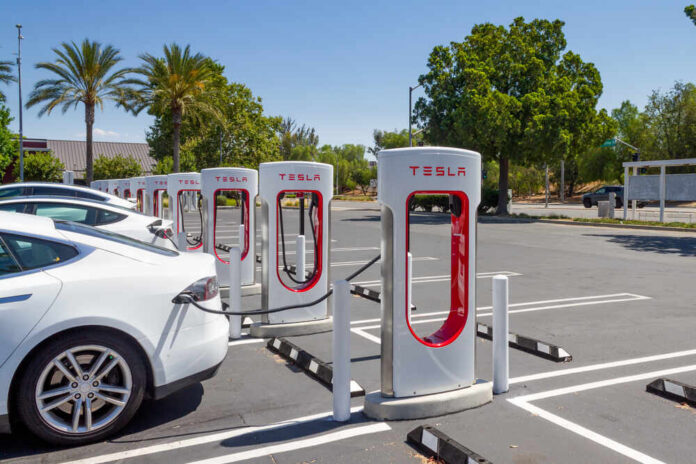
Following the relentless assault of Hurricane Idalia on the Big Bend region of the Sunshine State, two electric vehicles, both Teslas, succumbed to flames after being submerged in seawater. These incidents have prompted firefighters to issue a stern warning to residents, urging them not to keep their Electric Vehicles (EVs) inside or near any building or structure.
In a critical advisory shared on social media, the Palm Harbor Fire Rescue stressed the urgency of the situation: “If you own a hybrid or electric vehicle that has come into contact with saltwater due to recent flooding within the last 24 hours, it is crucial to relocate the vehicle from your garage without delay. Saltwater exposure can trigger combustion in lithium-ion batteries.”
This happens when floodwaters recede, leaving mineral deposits from the saltwater to dry on the battery. “The saltwater that is flooding can infiltrate the battery and remain there. Once it dries, it creates bridges between cells. This can subsequently lead to fires, which might ignite days to weeks after the initial exposure. Once an EV catches on fire, it is incredibly difficult to extinguish,” Olsen explained.
A word of caution about EVs and saltwater brought by tropical cyclones like Idalia: https://t.co/fVLrUQZQPA
— The Weather Channel (@weatherchannel) September 2, 2023
According to the U.S. Fire Administration, the ignition of EV batteries tainted by seawater can manifest days or even weeks after the initial contact. Furthermore, these fires emit harmful chemicals that are difficult to put out. Notably, this isn’t the first time Florida has witnessed such an occurrence.
Last year, during Hurricane Ian’s attack, a dozen EVs went up in flames after succumbing to the saltwater. Astonishingly, the wrath of a single corrupted EV stored inside a garage resulted in the destruction of two homes that had otherwise weathered the storm.
In the event your electric vehicle is exposed to saltwater flooding, the U.S. Fire Administration advises you to move it at least 50 feet away from structures, other vehicles, and combustible materials. This precautionary measure can help mitigate the risk of fire and ensure the safety of both your property and the community.
This recent incident has been eye-opener about the dangers of exposing EV batteries to saltwater, however, knowing is half the battle. The silver lining is being able to use this knowledge to prevent property damage, but more importantly, to save lives.














